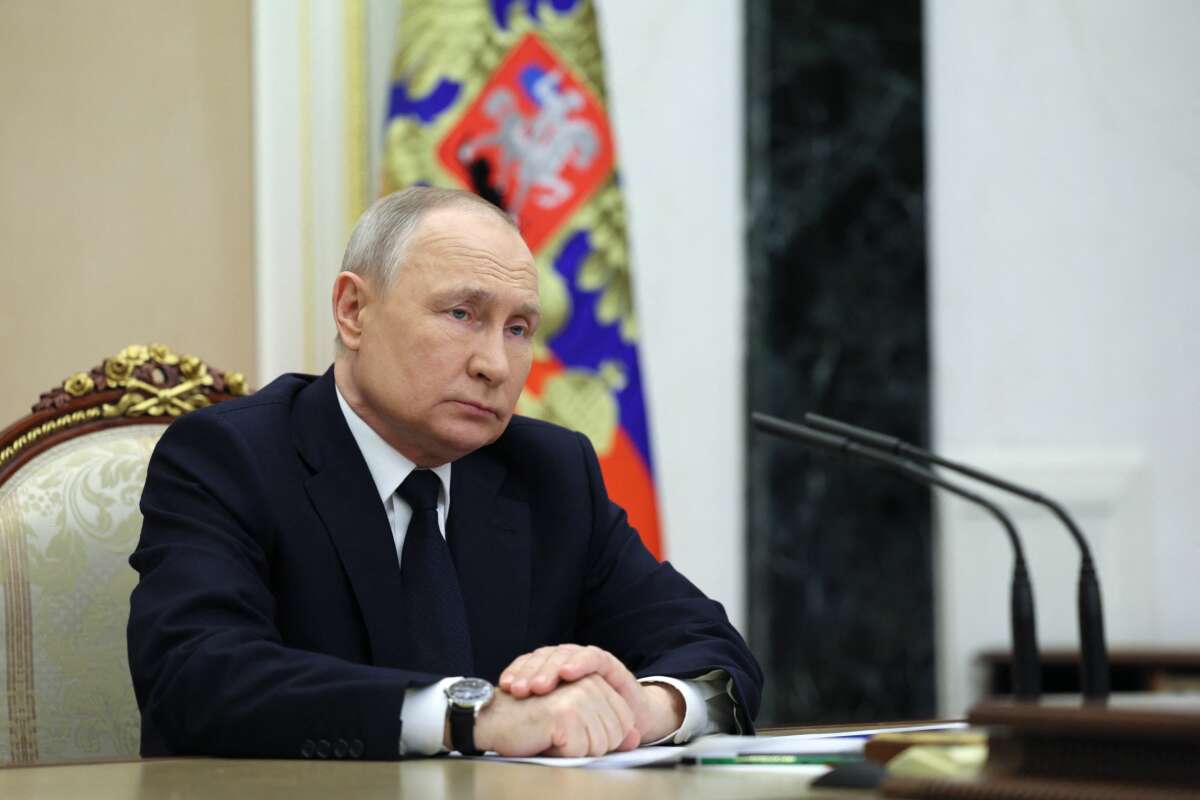Russian President Vladimir Putin announced on state television Saturday plans to station tactical nuclear weapons in Belarus — an escalation anti-war campaigners had been warning about and that alarmed disarmament advocates and experts.
The International Campaign to Abolish Nuclear Weapons (ICAN) “condemns this extremely dangerous escalation which makes the use of nuclear weapons more likely,” the group declared in a series of tweets.
“In the context of the war in Ukraine, the likelihood of miscalculation or misinterpretation is extremely high,” ICAN added. “Sharing nuclear weapons makes the situation much worse and risks catastrophic humanitarian consequences.”
The deployment decision comes 13 months into Russia’s invasion of Ukraine and after the United Kingdom this week revealed plans to provide the invaded nation with armor-piercing rounds containing depleted uranium (DU).
Putin said the U.K.’s announcement “probably served as a reason” why Belarusian President Alexander Lukashenko agreed to the plan and argued that it won’t violate Russia’s international nonproliferation treaty obligations, according to a BBC translation.
As Reuters explained, “The Treaty on the Nonproliferation of Nuclear Weapons, signed by the Soviet Union, says that no nuclear power can transfer nuclear weapons or technology to a nonnuclear power, but it does allow for the weapons to be deployed outside its borders but under its control — as with U.S. nuclear weapons in Europe.”
The United States, which has the world’s second-largest nuclear arsenal after Russia, “long ago deployed their nuclear weapons on the territory of their allies, NATO countries, in Europe,” the Russia leader noted. “We are doing the same thing that they have been doing for decades.”
Russia “will not hand over” nuclear arms to Belarus, Putin insisted, explaining that his country has already given its ally an Iskander missile complex that can be equipped with weapons, plans to start training crews in early April, and aims to complete construction of a special storage facility for the nukes by the beginning of July.
The Soviet Union collapsed in 1991 and in the five years that followed, nuclear weapons based in Belarus, Kazakhstan, and Ukraine were transferred to Russia — where they have remained since.
“It’s a very significant move,” Nikolai Sokol, a senior fellow at the Vienna Center for Disarmament and Nonproliferation, told Reuters of the deployment decision. “Russia had always been very proud that it had no nuclear weapons outside its territory. So, now, yes, they are changing that and it’s a big change.”
Hans Kristensen, director of the Federation of American Scientists’ Nuclear Information Project, told Reuters that “this is part of Putin’s game to try to intimidate NATO… because there is no military utility from doing this in Belarus as Russia has so many of these weapons and forces inside Russia.”
Global Zero managing partner Derek Johnson said that “Putin’s nuclear provocations are dangerous and unacceptable. U.S. and NATO must resist calls to respond in kind and avoid injecting nuclear weapons deeper into this war.”
In addition to his nuclear announcement, Putin pointed out during the Saturday interview that Russia also has depleted uranium shells. As he put it: “I must say that certainly, Russia has something to respond. Without exaggeration, we have hundreds of thousands, namely hundreds of thousands of such shells. We are not using them now.”
A U.K. Ministry of Defense official had confirmed earlier this week that “alongside our granting of a squadron of Challenger 2 main battle tanks to Ukraine, we will be providing ammunition including armor-piercing rounds which contain depleted uranium,” which swiftly generated concerns about not only Russian nuclear threats but also public health and environmental impacts.
“DU shells have already been implicated in thousands of unnecessary deaths from cancer and other serious illnesses,” stressed Kate Hudson, general secretary of the U.K.-based Campaign for Nuclear Disarmament, which has advocated for a moratorium on such arms. “Sending them into yet another war zone will not help the people of Ukraine.”
We have 7 days to raise $45,000 — we’re counting on your support!
For those who care about justice, liberation and even the very survival of our species, we must remember our power to take action.
We won’t pretend it’s the only thing you can or should do, but one small step is to pitch in to support Truthout — as one of the last remaining truly independent, nonprofit, reader-funded news platforms, your gift will help keep the facts flowing freely.
